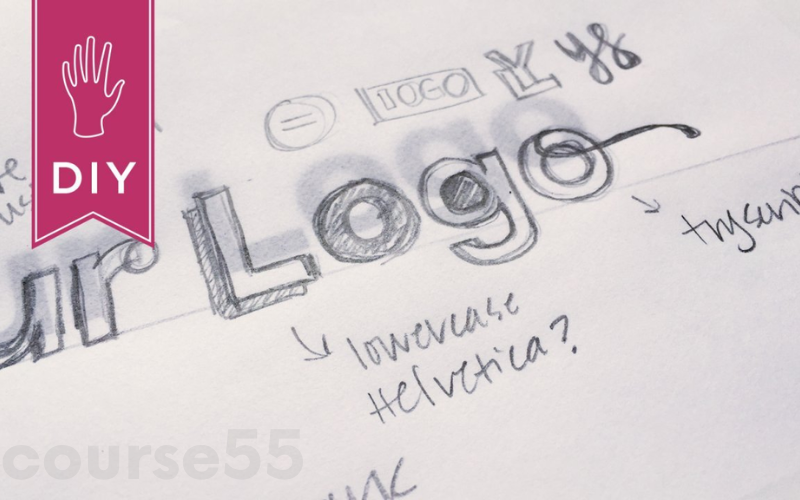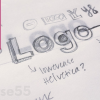Logo Design for Your Small Business By Matthew Jervis
$14.00 $5.00
Review of Logo Design for Your Small Business by Matthew Jervis
Content Proof:
Creating a compelling logo that resonates with your audience is an essential aspect of establishing a successful small business. In this digital age, where visual identity can make or break a brand, Matthew Jervis’s course, “Logo Design for Your Small Business,” emerges as a beacon for aspiring entrepreneurs. With a teaching style that bridges theory and practical application, Jervis breaks down complex design principles into manageable steps, making the art of logo design accessible to everyone, even those without a professional background in design. His extensive experience as a branding designer based in the vibrant San Francisco Bay Area infuses the course with real-world insights that can transform your approach to visual branding.
Overview of the Course Structure
Matthew Jervis’s course is thoughtfully structured to guide beginners through the logo design process from the initial spark of inspiration to the final touches on a digital file ready for various applications. This comprehensive approach allows participants to grasp both the technical and creative aspects of logo creation.
- Defining Success in Logo Design: Jervis begins by laying the foundation of what constitutes an effective logo. This phase serves as the compass guiding participants through the myriad options available in logo design. He emphasizes that successful logos are not just visually appealing but also aligned with the brand’s mission and values.
- Logo Research and Analysis: Understanding the market landscape plays a pivotal role in logo design. Participants are introduced to various research methodologies that enable them to analyze competitors’ logos and identify unique design opportunities.
- Types of Logos: The course delves into the various types of logos iconic, typographic, and abstract helping participants understand how each type communicates a brand’s identity differently. This section is particularly valuable, illustrating how effective logos serve as a visual shorthand for complex brand narratives.
- Iterative Design Process: Jervis highlights the importance of sketching preliminary designs before refining them. This iterative process not only encourages creativity but also helps in honing concepts that truly resonate with the brand ethos.
The course encapsulates a blend of theory, research, and practical application, ensuring that learners can create logos that are not only impactful but also relevant to their specific business context.
Essential Skills and Topics Covered
The curriculum covers crucial skills and topics that empower small business owners and budding designers alike to create logos that stand out in a crowded marketplace. This section provides an overview of the skills taught and their significance in logo design.
- Ideation: This foundational skill teaches participants how to brainstorm ideas and cultivate creativity. Jervis encourages learners to think outside the box, promoting an environment where innovative ideas can flourish.
- Typography: Understanding typography goes beyond selecting a pretty font; it involves comprehending how type influences perception. Jervis dives deep into the nuances of font choices, emphasizing their emotional impact on viewers and how they can reinforce brand identity.
- Color Theory: Colors evoke emotions and set the tone for a brand. Throughout the course, learners explore color wheel principles, color psychology, and how to choose palettes that align with their brand messages.
- Feedback Gathering: A key takeaway from the course is the value of constructive feedback. Jervis teaches participants to seek opinions on their designs, thereby fostering a collaborative environment that leads to stronger branding.
- File Preparation: Finally, Jervis addresses the technicalities of preparing logo files for both digital and print applications. This practical knowledge ensures that students can confidently present their logos across various media platforms, maximizing brand visibility.
By equipping participants with these vital skills, Matthew Jervis’s course ensures they walk away with the tools necessary to craft logos that effectively represent their brands.
The Role of Practical Design Thinking
One of the standout features of Jervis’s approach is the emphasis on practical design thinking principles. This methodology is particularly advantageous for small business owners who may wear multiple hats marketer, finance manager, and customer service expert at any given time.
- Problem-Solving: Design thinking encourages participants to identify specific problems their logos should address. Understanding the ‘why’ behind a logo fosters purpose-driven design, allowing businesses to communicate clearly with their target audiences.
- User-Centric Approaches: Jervis advocates for a focus on the end-users customers who will engage with the logo. By considering user preferences and behaviors, participants can design logos that resonate more deeply and build brand loyalty over time.
- Iterative Feedback: The course reiterates the value of continuous improvement through rigorous feedback cycles. This approach not only aids in refining design but also instills a culture of adaptability, which is essential in today’s fast-paced business environment.
Practical design thinking transforms the logo creation process into a journey of exploration and discovery, proving that it’s not just about creating a pretty picture but evolving an idea that connects with audiences on an emotional level.
Conclusion: A Transformative Experience
In conclusion, Matthew Jervis’s course, “Logo Design for Your Small Business,” stands out as an invaluable resource for anyone looking to forge a distinctive visual identity for their business. Jervis’s blend of theoretical knowledge and hands-on techniques equips participants with the essential skills and confidence to create effective logos that enhance their brand’s professional identity.
By demystifying the logo design process, he empowers small business owners to take control of their branding journey. His approach ensures that even those without prior design experience can successfully navigate the complexities of logo creation. If you’re ready to transform your brand’s visual identity, enrolling in this course could be your first step toward a more impactful business presence in today’s competitive marketplace.
Frequently Asked Questions:
Business Model Innovation: We use a group buying strategy that enables participants to share costs and access popular courses at lower prices. This approach helps individuals with limited financial resources, although it may raise concerns among content creators regarding distribution methods.
Legal Considerations: Our operations navigate complex legal issues. While we do not have explicit permission from course creators to resell their content, there are no specific resale restrictions mentioned at the time of purchase. This lack of clarity allows us to offer affordable educational resources.
Quality Control: We guarantee that all course materials provided are identical to those offered directly by the creators. However, please note that we are not official providers. As a result, our services do not include:
– Live coaching calls or sessions with the course author
– Access to exclusive author-controlled groups or portals
– Membership in private forums
– Direct email support from the author or their team
Our goal is to make education more accessible by offering these courses independently, without the additional premium services available through official channels. We appreciate your understanding of our unique approach.
Be the first to review “Logo Design for Your Small Business By Matthew Jervis” Cancel reply
You must be logged in to post a review.

 The Ultimate Love-Cheat Code Course - Melli Monaco
The Ultimate Love-Cheat Code Course - Melli Monaco 

















Reviews
There are no reviews yet.